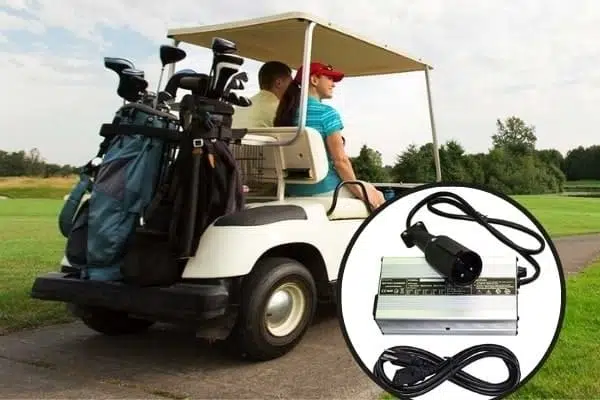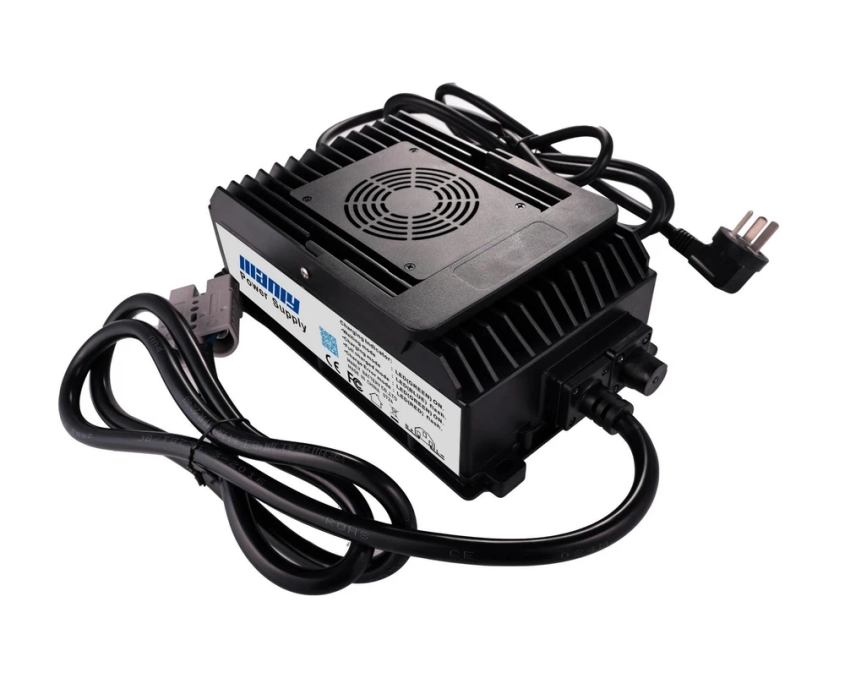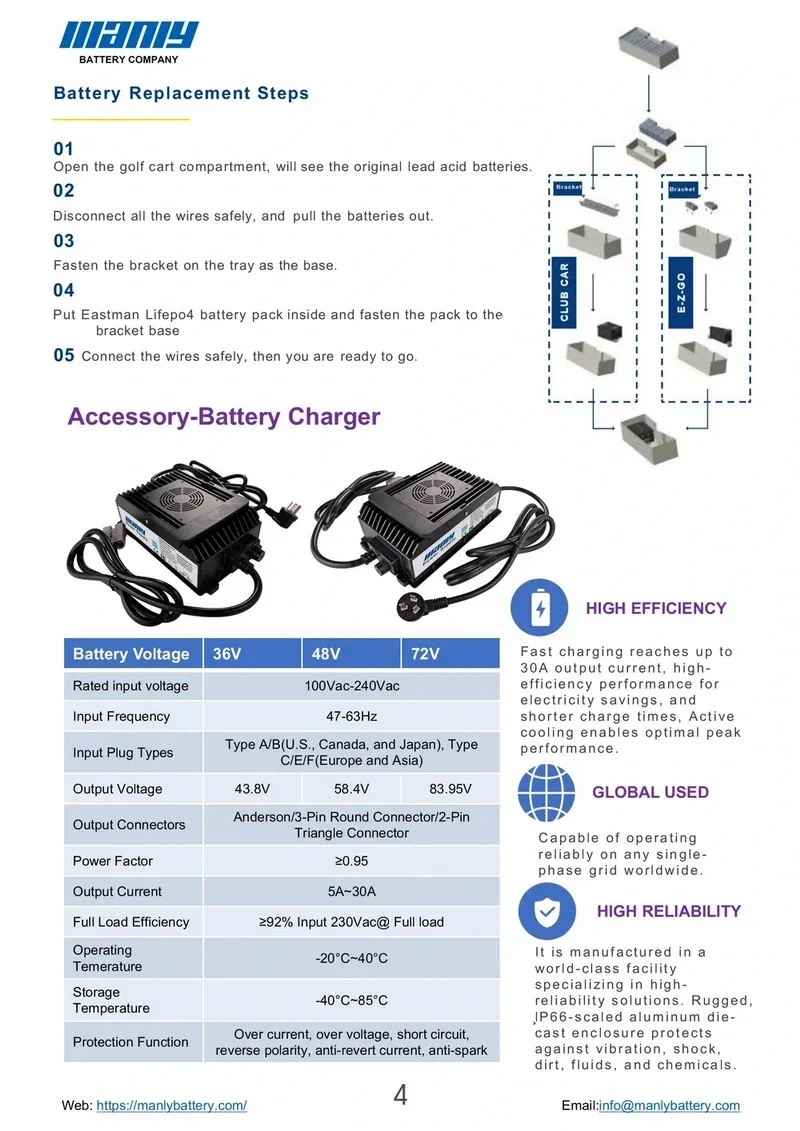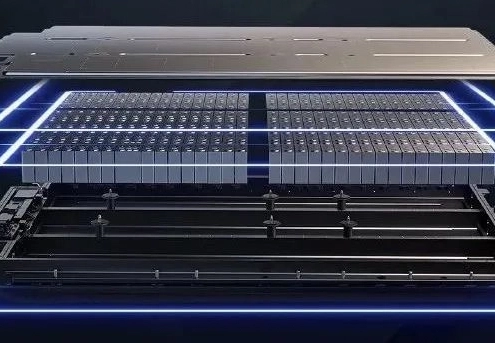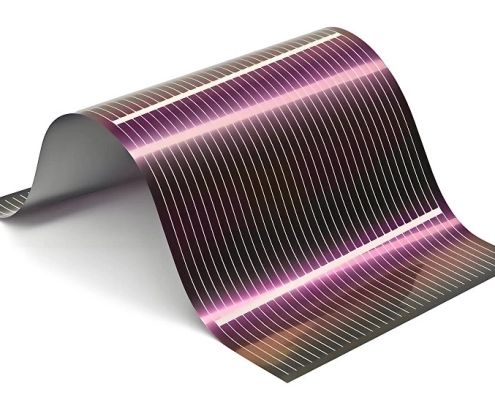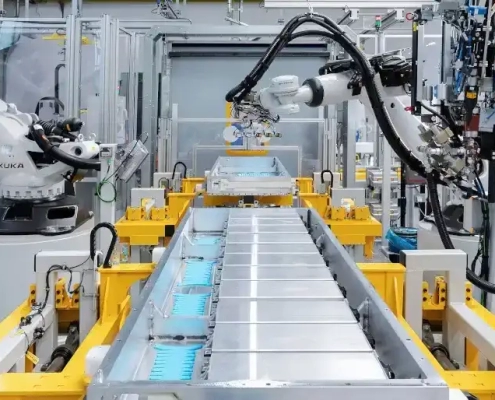How to Find the Right Battery Charger for Your Golf Cart
Table of Contents
- How to Find the Right Battery Charger for Your Golf Cart
- Do Golf Carts Require Specialized Battery Chargers?
- What Charging Amperage is Ideal for a Golf Cart?
- Top 6 Recommendations for Golf Cart Battery Chargers
- Is Switching to Lithium Batteries a Better Option for Your Golf Cart?
- Bulk Buying Chargers for Golf Cart Fleets and Large-Scale Use
- Selecting Golf Cart Chargers for Resale and Distribution
- How Long Can You Drive on a Fully Charged Lithium Golf Cart Battery?
- Should You Keep Your Golf Cart Plugged in Continuously?
- Risks of Overcharging and How to Avoid Them
- Why Investing in a High-Quality Battery Charger is Essential
- Key Considerations When Choosing Golf Cart Chargers for Business Buyers
- Conclusion
- FAQ:
- Learn More About Battery
When it comes to golf cart battery chargers, selecting the right product is crucial for maintaining the performance and longevity of golf carts, whether for individual use or businesses managing large fleets. Golf carts rely on properly maintained batteries, and the charger plays a significant role in ensuring the battery is kept in optimal condition. This introduction will guide you through the key considerations for choosing the best battery charger for golf cart use, especially for fleet operators or resellers who need reliable, efficient, and durable chargers.
Understanding the specific needs of your golf cart or fleet, such as voltage requirements, durability, and charging speed, will help make an informed decision. Chargers with smart charging technology, built-in safety features, and compatibility with various battery types are essential for ensuring that your carts remain operational without unnecessary downtime.
Do Golf Carts Require Specialized Battery Chargers?
Yes, golf carts do require specialized chargers designed to match the voltage and battery type of the cart. Most golf carts operate on either 36V or 48V battery systems, and it is essential to use a charger that matches the voltage of your battery. For example, a 36 volt battery charger is needed for a golf cart with a 36V system, while a 48 volt battery charger is required for a 48V system. Additionally, if your cart uses lithium batteries, it is critical to use a lithium battery charger. Lithium chargers have different charging algorithms to ensure the battery’s health and longevity, which is not the case with traditional lead-acid chargers.
Using the wrong charger can lead to undercharging or overcharging, both of which can shorten the lifespan of the battery. Smart chargers, which automatically stop once the battery is fully charged, are especially helpful in preventing overcharging. This feature is crucial to maintain battery performance and prevent overheating
Want to learn more about How to Charge Lithium Ion Battery? Click here for all the details!
What Charging Amperage is Ideal for a Golf Cart?
The ideal amperage for charging a golf cart depends on the size of the battery and the desired charging time. Generally, golf cart chargers range from 10 to 25 amps. A higher amperage charger, such as one rated at 20-25 amps, will charge the battery faster, but this may generate more heat. For instance, a 20-amp charger can charge a 48V golf cart battery in about 5-6 hours, while a 10-amp charger may take up to 10-12 hours. Therefore, if you need quicker charging, opting for a higher amp charger can be more efficient.
However, using a charger with too high of an amperage can negatively affect battery life by causing excess heat during charging. On the other hand, a lower amp charger will take longer but may be gentler on the battery, extending its lifespan. It’s always best to consult the manufacturer’s specifications to choose a charger with the appropriate amperage for your specific golf cart model.
Efficient chargers also waste less energy as heat, making them a better option for long-term battery health. Maintaining a balance between charging speed and safety is key to maximizing both battery performance and longevity.
Top 6 Recommendations for Golf Cart Battery Chargers
Choosing the right battery charger for golf cart batteries is essential for maintaining the health and longevity of your battery. Here are some top recommendations that stand out based on performance, durability, and user convenience.
1. MANLY Lithium Golf Cart Battery Charger
The MANLY lithium golf cart battery charger stands out for its superior efficiency and advanced charging technology. It boasts a 20%-30% higher energy conversion rate due to its integrated module design, making it ideal for quick charging while minimizing energy loss. This charger also comes with smart charging features, which use an intelligent chip to monitor the battery’s status, adjusting voltage and current to prevent overcharging and overheating. Additionally, its high-strength metal casing offers enhanced safety, with protection against short circuits, overcharging, and temperature fluctuations.
Here is MANLY Golf Cart Battery Charger Specification:

2. Lester Electrical Links Series Charger (36V and 48V Models)
Lester is a trusted brand known for its reliability and long-lasting chargers. The Lester Links Series offers both 36V and 48V options, making it compatible with most golf carts. This charger features smart technology, automatically adjusting the charging process based on the battery’s needs. It also includes a weather-resistant design, ensuring durability in various environments. The automatic shut-off feature prevents overcharging, which is vital for extending battery life. Its higher price point is justified by its quality and longevity, making it a solid investment for both personal use and fleet operators.
3. FORM 15 AMP EZGO RXV & TXT Battery Charger (48V)
The FORM 15 Amp Charger is popular for its rapid charging ability, reducing downtime for your golf cart. It is designed specifically for EZGO RXV and TXT models and is capable of fully charging a 48V battery in about 4-6 hours. This charger also includes a lengthy 16-foot cable, allowing for flexibility when parking near outlets. With built-in safety features like overcharge protection and a compact design, it is an excellent choice for users looking for both speed and portability.
4. YILEIDE 48V Golf Cart Charger
The YILEIDE 48V Charger offers a balance of efficiency and affordability. Rated at 15 amps, it is ideal for quickly charging your golf cart while protecting it from common electrical issues with its smart protection system. Its IP67 rating ensures that it is dustproof and water-resistant, making it suitable for outdoor charging. Although it has fewer reviews than some other options, it is highly rated for its fast charging times and robust construction.
5. Ebusin 48V 15 Amp Smart Charger
For those who prioritize smart charging features, the Ebusin 48V Smart Charger is a great choice. It automatically switches from a full charge to a trickle charge to maintain battery health over time. This charger is known for its fast charging, with most carts being fully charged within 3-6 hours. It also comes with an LCD display, providing real-time information on charging status. Lightweight and portable, this charger is perfect for golfers who are frequently on the move.
6. ELEUPFS 48V Club Car Charger
The ELEUPFS 48V Charger is another reliable option for Club Car models. It provides rapid charging in 4-6 hours and automatically transitions to a trickle charge to maintain the battery without overcharging. Weighing only 5.5 pounds, it’s one of the more portable chargers available, ideal for users who need to carry their charger between different locations. Its advanced safety features, including short circuit protection and overload prevention, ensure reliable use.
When selecting a battery charger for golf cart, it’s crucial to consider the voltage compatibility, amp output, and safety features to maximize battery performance and longevity. Each of these chargers offers unique benefits, whether you prioritize fast charging, portability, or smart technology to protect your investment.
By investing in a high-quality charger, you can reduce downtime, extend your battery’s life, and ensure your golf cart is always ready for use.
Looking for the best golf cart battery charger? Click here to learn more!
Is Switching to Lithium Batteries a Better Option for Your Golf Cart?
Switching to lithium golf cart batteries offers several advantages over traditional lead-acid batteries, making it an increasingly popular choice for golf cart owners. Here’s why upgrading to lithium batteries might be worth considering:
1. Longer Lifespan
Lithium batteries are known for their extended lifespan, often lasting up to 10 years, whereas lead-acid batteries typically need to be replaced every 3-5 years. This longevity translates into fewer replacements, saving both time and money over the long term.
2. Faster Charging
Lithium batteries offer significantly faster charging times. While lead-acid batteries can take 8-12 hours to fully charge, lithium batteries can reach a full charge in just a few hours, typically around 2-4 hours. This feature is ideal for those who need their golf cart ready quickly, minimizing downtime between uses.
3. Lightweight Design
Lithium batteries are 50-60% lighter than lead-acid batteries, reducing the overall weight of your golf cart. This not only improves the cart’s handling and speed but also enhances energy efficiency. The reduced weight allows for smoother acceleration and more responsive steering, making your ride more enjoyable.
4. Consistent Power Output
One of the key performance benefits of lithium batteries is their ability to maintain consistent power output throughout their charge cycle. Unlike lead-acid batteries, which gradually lose power as they discharge, lithium batteries deliver the same level of power until they are nearly depleted. This results in more reliable performance, allowing you to complete a round of golf without worrying about a drop in speed or power.
5. Minimal Maintenance
Lithium batteries require much less maintenance compared to lead-acid batteries. Lead-acid batteries need regular water top-ups, terminal cleaning, and proper ventilation. In contrast, lithium batteries are virtually maintenance-free, thanks to their sealed design, which eliminates the risk of acid leaks or corrosion.
6. Higher Upfront Cost but Long-Term Savings
While lithium batteries come with a higher upfront cost—often two to three times that of lead-acid batteries—they offer significant long-term savings. The combination of a longer lifespan, less frequent replacements, and reduced maintenance costs makes them a more economical option over time. Additionally, their energy efficiency helps lower electricity costs associated with frequent charging.
Is It Worth It?
For golf cart owners who prioritize performance, efficiency, and long-term savings, switching to lithium golf cart battery is a smart investment. The benefits—faster charging, longer lifespan, lighter weight, and minimal maintenance—far outweigh the higher initial cost. Whether you’re a casual golfer or manage a fleet of carts, the enhanced performance and reduced downtime can significantly improve your overall experience.
Bulk Buying Chargers for Golf Cart Fleets and Large-Scale Use
For golf resorts, large estates, and businesses running extensive golf cart fleets, purchase in bulk chargers presents several significant advantages. This approach not only reduces costs but also enhances operational efficiency and simplifies fleet management.
1. Cost Savings
Purchasing golf cart chargers in bulk allows for substantial savings compared to buying individual units. Suppliers often offer bulk discounts, lowering the price per unit, which can lead to considerable long-term savings for businesses operating large fleets. Additionally, buying in bulk can reduce overall shipping costs, as multiple chargers are shipped together, further cutting expenses.
2. Streamlined Operations
Fleet managers can benefit from having a consistent supply of chargers on hand, reducing the need for frequent reordering and preventing downtime due to equipment shortages. Bulk purchasing ensures that chargers are available whenever needed, allowing for smooth operations, particularly during peak times when all carts need to be charged simultaneously.
3. Better Supplier Relationships
Establishing relationships with suppliers through bulk purchasing can result in more favorable terms, such as priority support, faster delivery, and even custom configurations that cater to the specific needs of large golf cart fleets. These relationships can be vital for businesses that rely on high uptime and need reliable, durable chargers for long-term fleet management.
4. Enhanced Fleet Efficiency
Chargers that are designed for fleet use, such as those offered by MANLY Battery or Delta-Q Technologies, come with advanced features like smart charging algorithms and multi-battery support. These chargers not only reduce the time it takes to fully charge multiple carts but also help extend the life of the batteries, making them a smart investment for large-scale operations.
Selecting Golf Cart Chargers for Resale and Distribution
When selecting golf cart battery chargers for resale or distribution, it’s crucial to consider features that appeal to both end users and B2B clients, such as golf courses, resorts, or recreational businesses. Here are some key factors to guide your selection process:
1. Voltage and Compatibility
The chargers must match the voltage requirements of common golf cart models, such as 36V, 48V, or lithium-based systems. Offering a variety of chargers that cater to multiple golf cart brands like EZGO, Yamaha, and Club Car will make your product range more attractive to potential buyers.
2. Custom Branding Options
For distributors, it is often advantageous to provide chargers that can be branded with the distributor’s logo or custom packaging. This allows for greater market differentiation and brand loyalty. Many manufacturers offer private labeling or customized charger designs to cater to businesses that wish to resell under their own brand.
3. Smart Charging and Durability
Smart charging features, such as automatic shutoff, temperature control, and protection against overcharging, are essential for both safety and long-term battery performance. Chargers with IP-rated casings are particularly beneficial for businesses managing outdoor fleets, as they are resistant to dust, water, and harsh weather conditions.
4. Bulk Discounts and Supply Chain Efficiency
When buying for distribution, it’s important to work with manufacturers that offer competitive bulk pricing and fast shipping options. Strong supplier relationships can ensure a steady inventory flow and access to after-sales support, which is crucial for resellers dealing with customer inquiries or technical issues.
How Long Can You Drive on a Fully Charged Lithium Golf Cart Battery?
The range of a golf cart with a fully charged lithium battery can vary significantly depending on the battery capacity, cart model, and driving conditions. Typically, a fully charged MANLY 48V 105Ah lithium golf cart battery can provide a range of 30 to 50 miles per charge, which is far superior to traditional lead-acid batteries that offer around 15-25 miles. Factors such as terrain, passenger weight, and the use of accessories (like lights or fans) can reduce the range. For example, a cart loaded with four passengers or driving uphill may decrease the total distance.
Additionally, using a high-quality battery charger for golf cart specifically designed for lithium batteries is crucial for maximizing range and battery life. Chargers with smart charging features ensure the battery is charged efficiently without overheating or overcharging, which further helps maintain consistent performance during use.
Should You Keep Your Golf Cart Plugged in Continuously?
Leaving your golf cart plugged in continuously is generally not recommended, even with lithium batteries. Overcharging can cause long-term damage, reducing the battery’s lifespan. However, many modern chargers include automatic shutoff features or smart charging technology, which monitor the battery’s charge level and stop charging when the battery is full, helping to prevent damage.
It’s best to unplug the cart once the charging cycle is complete, particularly if your charger doesn’t have automatic shutoff. For fleets or businesses with multiple carts, using a smart charger that can handle scheduled charging and safely maintain battery levels over time is ideal to ensure batteries remain in good condition without constant monitoring.
Risks of Overcharging and How to Avoid Them
Overcharging golf cart batteries, whether they are lithium or lead-acid, can lead to several damaging effects, significantly reducing the battery’s lifespan and performance. One immediate issue is excessive heat generation, which occurs when the battery receives more voltage than it can handle. This can cause the electrolyte inside the battery to boil, leading to reduced battery capacity and a shorter runtime during use. Over time, this constant stress can cause the battery casing to swell or bulge, potentially leading to permanent damage. In severe cases, overcharging can even result in leaks or the release of flammable gases, posing a safety risk.
To prevent these issues, fleet operators and distributors should invest in automatic chargers designed to stop charging once the battery reaches full capacity. This helps prevent both overcharging and undercharging, which are common causes of battery failure. Additionally, using battery management systems (BMS) for lithium batteries ensures safe charging practices by regulating the charging process and avoiding the risks associated with manual oversight.
Why Investing in a High-Quality Battery Charger is Essential
Investing in a high-quality battery charger is crucial for businesses managing large golf cart fleets. A reliable charger not only extends the battery’s lifespan but also ensures the cart is always ready for use. Chargers with smart features like automatic shutoff and temperature monitoring help prevent overcharging and overheating, which are common causes of battery degradation. By using a charger tailored to your specific battery type, whether it’s lithium or lead-acid, you also reduce the risk of damage caused by incorrect charging.
For fleet operators, downtime is a significant concern. A high-quality charger can reduce charging time, ensuring carts are back in operation quickly. Additionally, the reduced need for battery replacements means lower long-term costs, making this an essential investment for maintaining operational efficiency.
Key Considerations When Choosing Golf Cart Chargers for Business Buyers
When purchasing golf cart chargers for bulk use, particularly for businesses like golf resorts, large fleets, or those looking to resell, there are several key factors that should guide your decision:
1. Durability and Weather Resistance
Chargers used in outdoor environments need to withstand varying weather conditions. Look for chargers with IP ratings (such as IP67), which indicate protection from dust and water. This is particularly important for fleets operating in various climates or for businesses that store chargers in outdoor locations.
2. Compatibility with Popular Brands
Ensuring that the charger is compatible with different golf cart brands, such as EZGO, Yamaha, or Club Car, is essential. Compatibility with both 36V and 48V systems is often necessary to serve a wide range of customers or fleets. Offering versatile chargers can enhance market appeal, making it easier to resell chargers to businesses operating different models.
3. Warranty and Customer Support
A reliable warranty and robust customer support are crucial, especially for business buyers. Warranties not only protect your investment but also provide peace of mind that any potential issues can be addressed without extra costs. Opting for chargers from manufacturers that provide excellent after-sales support, such as U.S.-based teams, can be a major selling point when marketing to B2B clients.
4. Smart Charging Features
For businesses managing fleets, smart charging technology is a must. Features like automatic shutoff and trickle charging prevent overcharging, which can significantly extend the battery’s lifespan. Chargers equipped with these features help businesses avoid unnecessary battery replacements and reduce downtime.
Conclusion
Investing in high-quality golf cart battery chargers is essential for businesses looking to manage large fleets or resell to various customers. By focusing on durability, compatibility, warranty, and smart technology, B2B buyers can ensure they are making informed purchasing decisions that offer long-term benefits. Whether you’re managing a fleet or entering the resale market, selecting the right charger is key to maintaining operational efficiency and customer satisfaction.
FAQ:
1. How to Charge Golf Cart Batteries?
R: To charge golf cart batteries effectively, follow these steps:
- Turn off the golf cart and remove the key for safety.
- Connect the charger to the battery by matching the red wire to the positive terminal and the black wire to the negative terminal.
- Plug in the charger to a power source. Most modern chargers will display a green light when fully charged, and they have automatic shutoff features to prevent overcharging.
- Monitor the process—avoid letting the battery drop below 20% and never overcharge, as it can damage the battery.
It’s best to charge your golf cart batteries after every use to prolong their lifespan.
2. How to Test a Golf Cart Battery Charger
To test a golf cart battery charger:
- Use a Multimeter: Set it to DC voltage, connect the red probe to the positive terminal and the black probe to the negative terminal of the charger. Turn the charger on, and check the output voltage. It should be higher than the battery’s resting voltage (usually between 12.6V and 14.4V, depending on the system).
- Check Amperage: Set the multimeter to measure DC current, then connect it in series between the charger and the battery. A proper charger should display amperage matching its specifications.
- Listen for Sounds: If you hear a hum or click when turning the charger on, it’s working properly. Otherwise, check the fuse and internal components if necessary.
- Test with a Good Battery: If unsure about the battery, test the charger with a known good battery to confirm its performance.
This ensures the charger is operating correctly and helps maintain your golf cart battery’s longevity.

